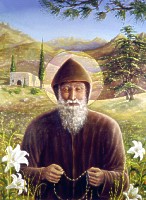O'Connell: We say we have the fullness of revelations, and yet at the end of time we know that there will be a full revelation in a way that we had never imagined.So to address a point raised recently, the Church is the guardian of the Truth revealed to us through Jesus Christ. But as humans, none of us posses the capability of completely understanding the Truth. We grow in our understanding through time. Likewise the Church, as a human institution, could not be expected to fully understand the Truth immediately. Trough time the Church gains a deeper understanding and knowledge of the Truth, with it then articulates as part of its duty. The Church doesn't make the Truth, it holds and articulates the Truth.
Cardinal Arinze: When we say we have the fullness of revelation, we must go carefully. The fullness of revelation has been given to manking in Jesus Christ, and he has entrusted this to his Church. But that does not mean that every one of us in the Church knows God fully. We would not be so proud. We only know a little. We can grow.
It does not even mean that the Church as a whole does not grow. The Church grows in that knowledge of God, and in the knowledge of revelation, and as the ages role by, the Church -- by prayer, by reflection, by reading the lives of the saints and the early teachers or Fathers of the Church, and by the assistance of the Holy Spirit--comes to a better understanding of some parts of our Faith. So the whole Church grows; much more do individuals grow.
O'Connell: Thos who will read this will say your words speak to thier own experience, more so than documents that seem to affirm with great certainty adn clarity but, at times, do not reach the hearts of people.
Cardinal Arinze: To say that one individual can be nearer to God than another does not mean that the Church should abandon her duty to articulate the faith. We notice that from the early years of the Church, from the second, third, and fourth centuries, the bishops, coming together with the Pope or his delegate, felt it their duty to say, "This is what we believe, we believe, we believe." That is the origin of the Credo.
It is the duty of the teaching authority of the Church to articulate that faith, that is, to state it in human language, also using philosopical terms or concepts, because the faith has to be handed down. If we handed down the fiath only by silent witness, but not by a simple word, you would soon find that the child growing up does not know in what faith he is being initiated. That's why the credos were often tied to baptism. The person is being baptized into the faith of that community as articulated. The articulation of the faith retains its imporantce, otherwise we will soon become a type of spiritiual group in which nobody knows what he believes, nobody can articulate it, nobody knows what to hand down, and nobody can say to anyone, "You are not believing what our ancestors in the faith handed down to us."
Because in the days of the aposles, Saint Peter and Saint Paul, we are told that Saint Peter said, "There are several things Paul wrote that are difficult to understand and that some abuse to their own destruction." Saint Paul was very strict on what people were to believe. He told the Galatians, "If anyone preaces a Gospel to you different from the one we have preached to you, let him be anathema. So you are to believe what has been handed down to you, and not to believe anythign else." This means that they were also very careful about the articulation of the faith even in the days of Saint Paul.
How much more so, later one, when the Church had met Greek and Roman philosophy, and the faith had to be expressed in those terms. How much more so also when some began to say there are two persons in Christ, so the Church was compelled to express herself on this quesion; or again when people said Christ was not God, the the Councils of Nicaea and Constantinople had to say no: "He is God from God, Light from Light, true God from true God, begotten not made, one in substance with the Father, and through him all things were made." All that articulation came with time.
Without this central authority in the Church to hold and articulate the Truth we get exactly what Cardinal Arinze is speaking about when he says, "The articulation of the faith retains its imporantce, otherwise we will soon become a type of spiritiual group in which nobody knows what he believes, nobody can articulate it, nobody knows what to hand down, and nobody can say to anyone, 'You are not believing what our ancestors in the faith handed down to us.' " The Protestant churches today, and thier many disagreements in belief and doctrine, provide a perfect example of what happens when the teaching authority of the Church, established by Christ and given to the apostles, is rejected.






No comments:
Post a Comment